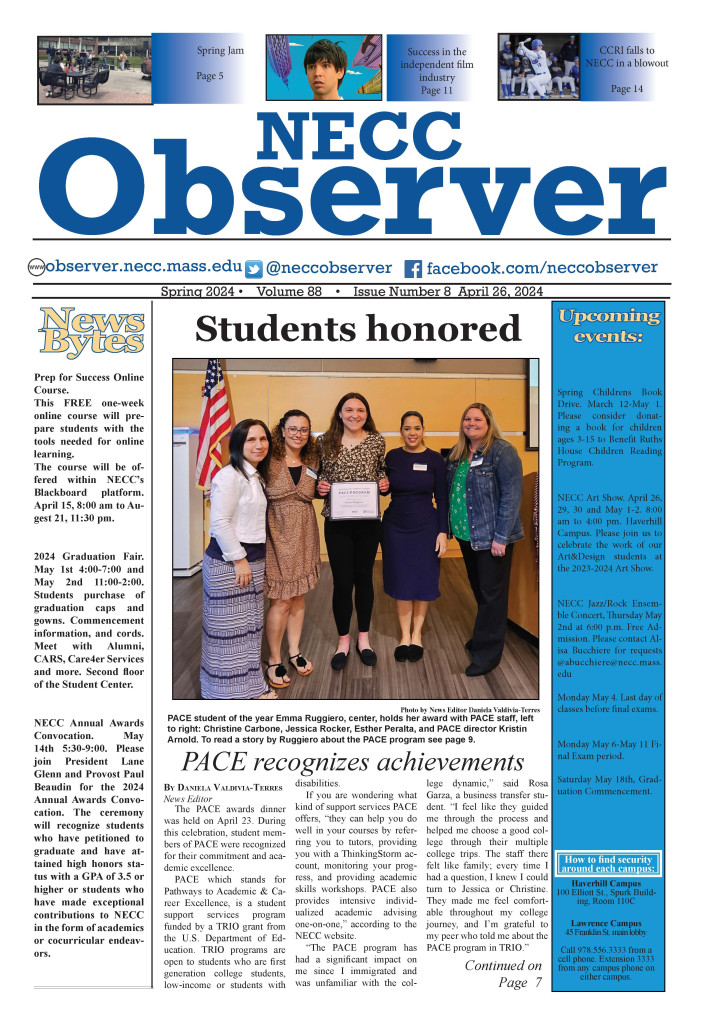Daylight Savings is a normalcy here in New England, and its end in the fall leads to reduceddaylight, shorter days, and a drop in moods. Some may be aware of the phrase “winter blues,”the phenomenon where many feel sadder during the winter months. It’s an old phrase, dating back to the 1880s. It was later redefined by American psychologist Norman E. Rosenthal as Seasonal Affective Disorder, a medical term that allows those severely affected to get proper treatment. It can be an exhausting affliction, making an entire part of a year harder for people because of somethingoutside of their control.
Today, NECC students share their experiences, struggles, and advice on how to deal with seasonal affective disorder. Due to how personal this topic can be, the students have asked to be kept anonymous.
“When the sun sets early, like at 4:00 p.m., it makes me feel tired. It makes me feel like I don’t want to do homework, chores, anything in my house. Sometimes it causes a person to isolate, and for me, it’ll cause me not to eat throughout the day. One time I did not eat until dinner. That was not fun, but that is how it is sometimes. What I do to help lift myself is sometimes I just listen to music. I do this thing called diamond art, so sometimes I’ll just put a show on while I just do diamond art, which helps me get through it. For others, just do something that makes you happy. Sometimes even going on a walk can help,” said a liberal arts major, 19.
“It just kind of feels like life gets sucked out of me. I used to not even really pay attention todaylight savings until I was in high school, that’s when it really started to affect my mood.
“It gets hard to do things, like to find motivation to do anything. It makes me just want to stay inside, which often can make things worse. I have to really push myself to reach out to my friends when I’m feeling down, they help ground me. Hanging out with them cheers me up as well, keeps my mind active I think,” said an Engineering major, 23
“I hate daylight savings. I really think we should get rid of it. My sister gets seasonal affectivereal bad, she first started feeling it her freshman year of high school.
“A part of me knows that keeping the clocks ahead only one hour won’t help that much, but even just a little can go a long way I think. It just frustrates me to no end to see my sister have to go through this depression every year, even though she’s finally getting treatment for it thankfully. If you’re able, please talk to a doctor if you think you might have seasonal affective. It really did help my sister this fall, and hopefully she’ll be okay this winter,” said a music major, 20.
According to organizations like Mayo Clinic, there are more than 3 million cases of Seasonal Affective Disorder every year.
If you feel that you may be suffering from SAD, please speak to your doctor.
If you feel you need to speak with someone on campus, please reach out to our counselors by email at counseling@necc.mass.edu or by telephone at 978-556-3730.
You are not alone, many struggle as the days grow short and the nights longer.

